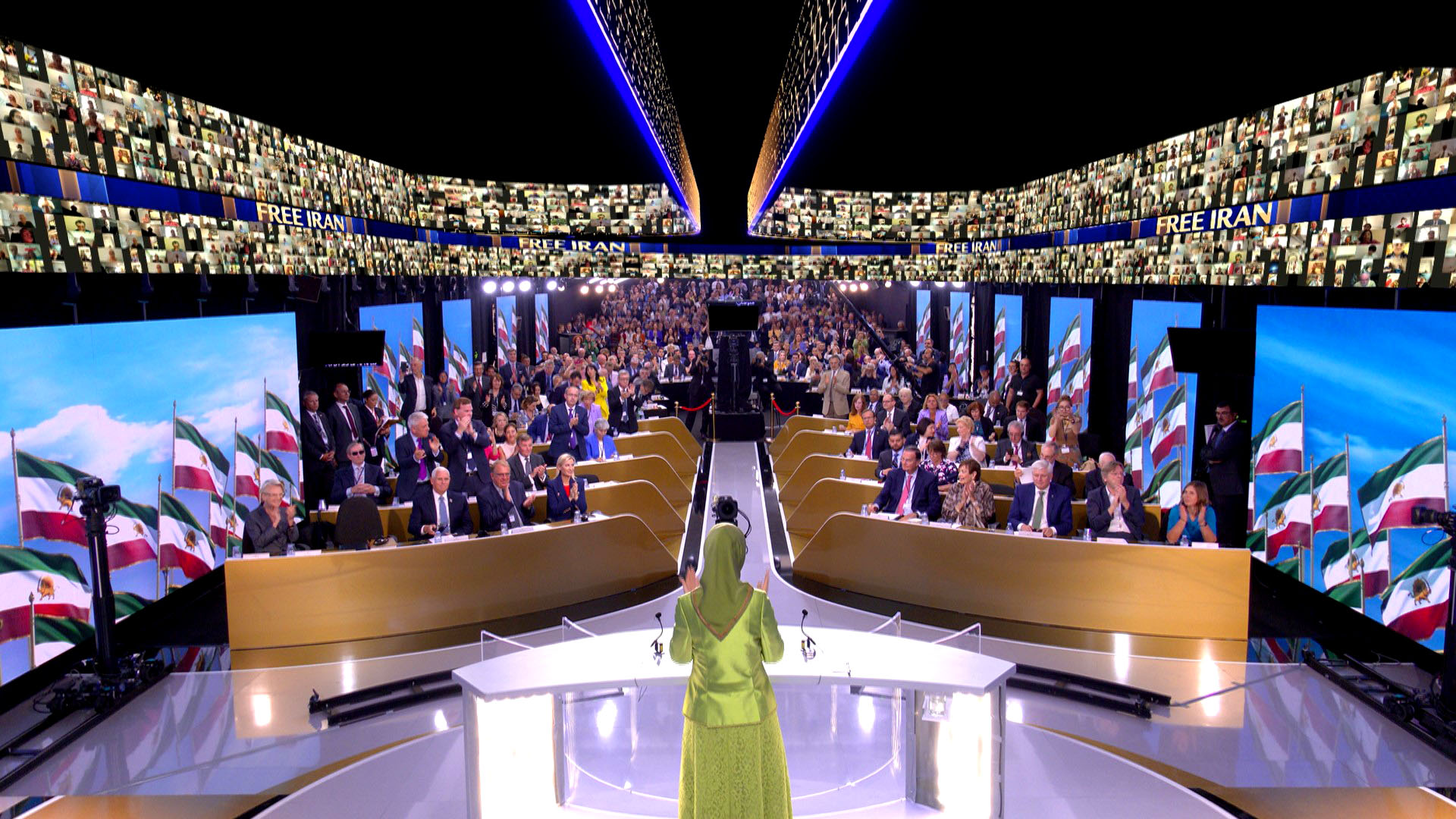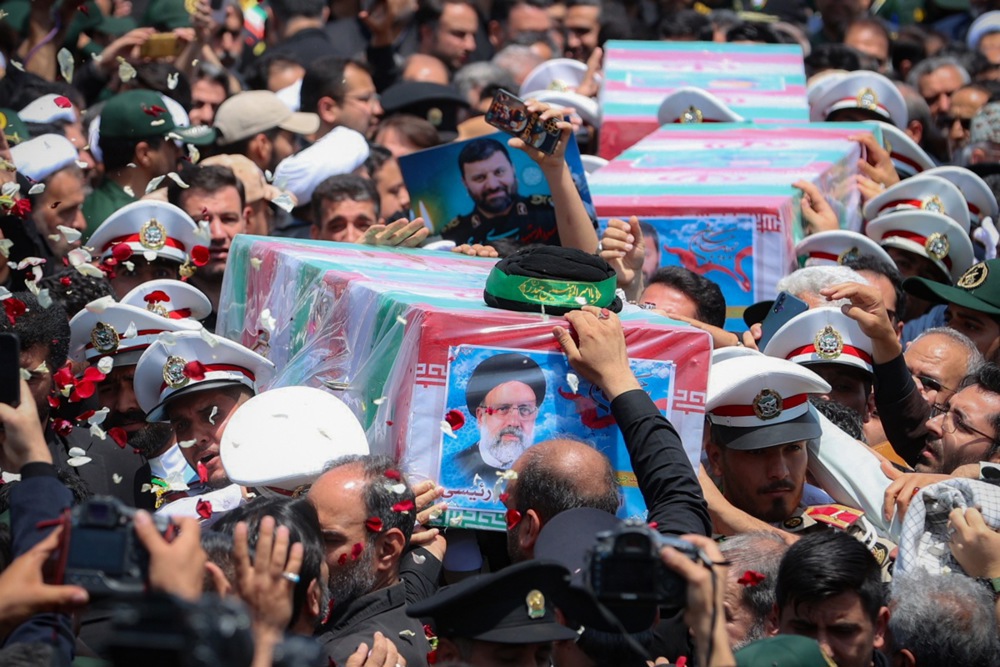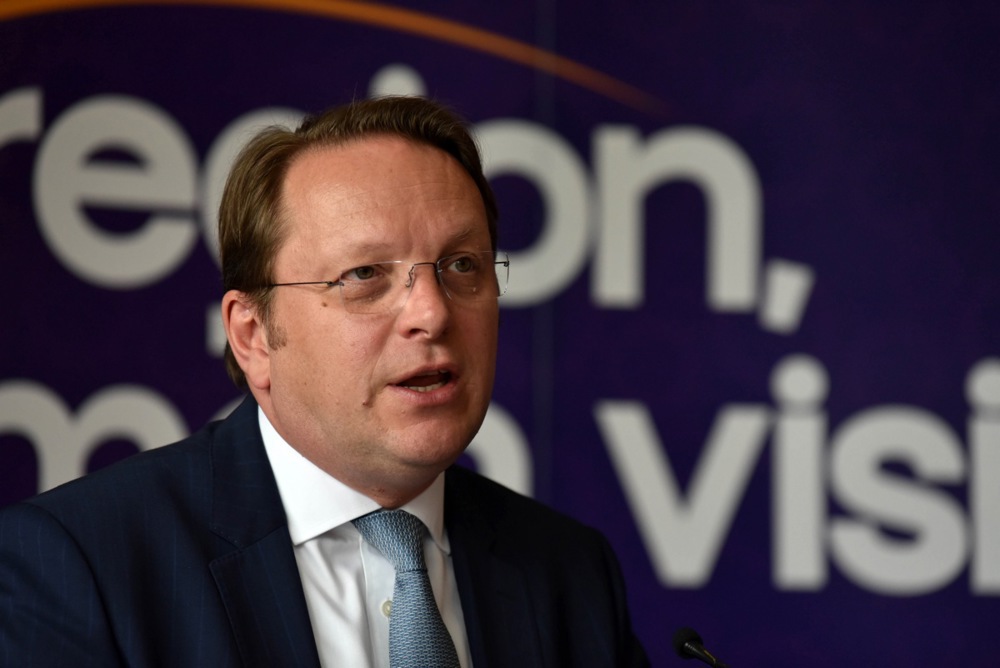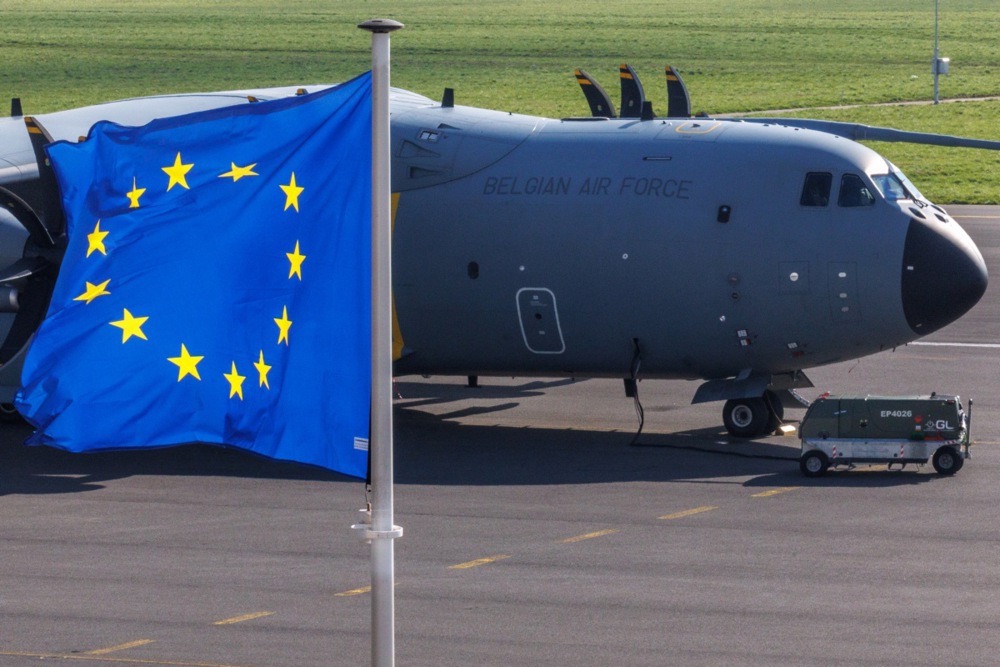The National Council of Resistance of Iran’s (NCRI) annual three-day Free Iran World Summit this year happened to take place after the general elections in the Middle East country following the death of Prime Minister Ebrahim Raisi.
On the first day, June 29, a conference took place in Paris while thousands of Iranians in Berlin demonstrated against their nation’s current leadership.
The NCRI has been orchestrating the campaign in support of regime change in Tehran for years and often lobbies abroad in cities such as Brussels and Washington.
One of its representatives and most visible faces is Ali Safavi, member of the Foreign Affairs Committee of the National Council of Resistance of Iran.

Questioned about the June 28 Iranian election, he said he considered that “[in] Iran [it] does not qualify as a true election but, rather, a selection”.
He said that was because of the strict vetting of candidates by Iran’s Guardian Council, a 12-member body, half of whom are appointed by the Supreme Leader Ali Khamenei.
Among them is Saeed Jalili, known for his hardline stance and his role in the Iran-Iraq War, where he served as Secretary of the Supreme National Security Council. Another is Mohammad Bagher Ghalibaf, who has held multiple high-ranking positions, including Speaker of Parliament and commander of the Islamic Revolutionary Guard Corps (IRGC) Air Force.
“He is known for his role in the suppression of the 1999 student movement,” Safavi said.
He emphasised that, regardless of who emerges victorious in the election, the regime’s policies will remain unchanged due to the tight control exercised by the Supreme Leader. “Policies won’t change from any initiated by Khamenei,” he said.
The expected low voter turnout, as in previous elections, indicated widespread public disillusionment, Safavi said. “In the first round, 7 per cent of the electorate voted; in the second round, 3.5 per cent,” he added, highlighting the regime’s likely inflation of voter turnout figures to claim legitimacy.
In the short term, the NCRI aims to organise further protests and acts of resistance within Iran and highlighted the dire economic situation and widespread dissatisfaction among the population.
“Inflation is now more than 50 per cent. About 50 per cent of people are unemployed and 70 to 80 per cent of Iranians live below the poverty line,” Safavi said.
Internationally, it seeks to garner greater support from foreign governments and institutions. It aims to push for further action from the UN, increase sanctions and designate the IRGC as a “terrorist organisation”.
Its members also call for holding regime leaders accountable for “crimes against humanity” and genocide, referencing recent reports by the UN Special Rapporteur on Iran.
The European Union is divided on its position regarding Iran. According to European parliamentary sources, “there are groups that want to increase pressure” without giving much thought to the consequences and others, fearful of the latter, “prefer to be more cautious”.
Three former European Union leaders representing the Brussels-based NGO International Committee In Search of Justice will submit an official complaint to the European Commission for its “appeasement” of Iran. https://t.co/QuJ9MK8BgM
— Brussels Signal (@brusselssignal) May 23, 2024
Safavi urged the EU to take decisive united action, including designating the IRGC as a terrorist organisation, expelling Iranian agents and shutting down Iranian embassies in Europe, which he said were seen as “hubs for terrorism”.
“Iran is a threat to European security,” he claimed.
Safavi pointed to the recent arrest of an Iranian allegedly involved in plotting attacks in Europe as evidence of the threat posed by the regime’s agents.
“We are calling on the European Union to close down Iranian embassies and diplomatic representations in Europe and expel all of the Iranian regime’s agents from European soil,” he said.
Acknowledging the difficulties of its mission, the NCRI representative highlighted past successes in overcoming legal and political obstacles, such as being removed from terrorist lists by European and American courts.
He emphasised the importance of continued pressure on the regime, citing the NCRI’s role in exposing Iran’s nuclear activities, which prompted international sanctions. “We had more than 100 revelations about Iran’s nuclear programme,” Safavi pointed out.
He also addressed the personal risks faced by resistance members, noting the regime’s attempts to target dissidents abroad. “In 2018, the FBI arrested two agents in the United States for gathering intelligence for a capture-and-kill operation,” he said.
Despite these dangers, the NCRI members remain committed to their cause, driven by the desire for a democratic Iran, he insisted.
“The Iranian people are not only capable of bringing change, not only want change but, more importantly, they deserve a democratic form of government,” Safavi stated.
The Iranian embassy in Spain has at time of writing not responded to a request for comment.
Was Iran behind the ‘assassination attempt’ of Spain’s Vox founder, Alejo @VidalQuadras? He certainly thinks so. https://t.co/7KGNCioVRL
— Brussels Signal (@brusselssignal) November 24, 2023





